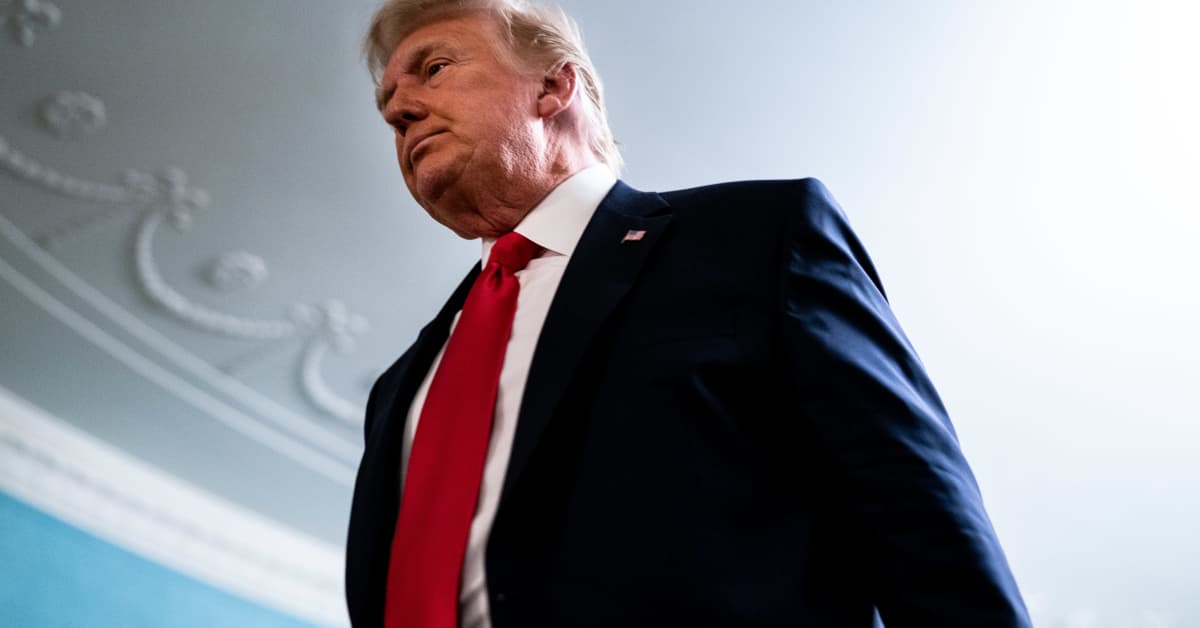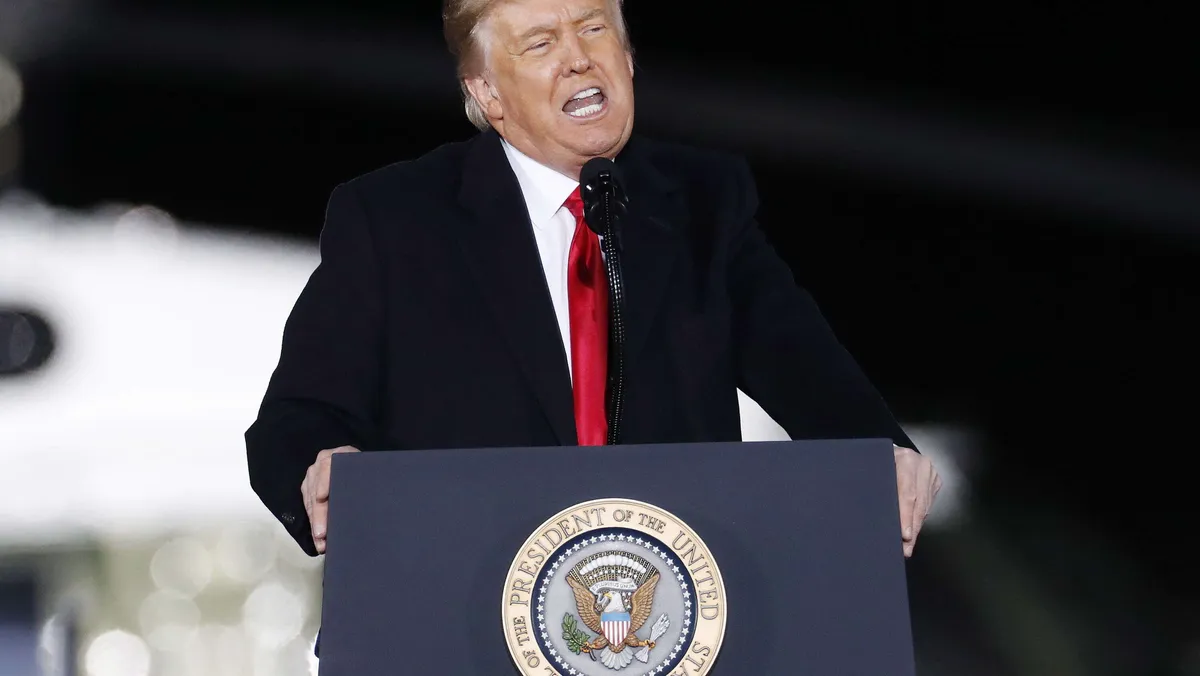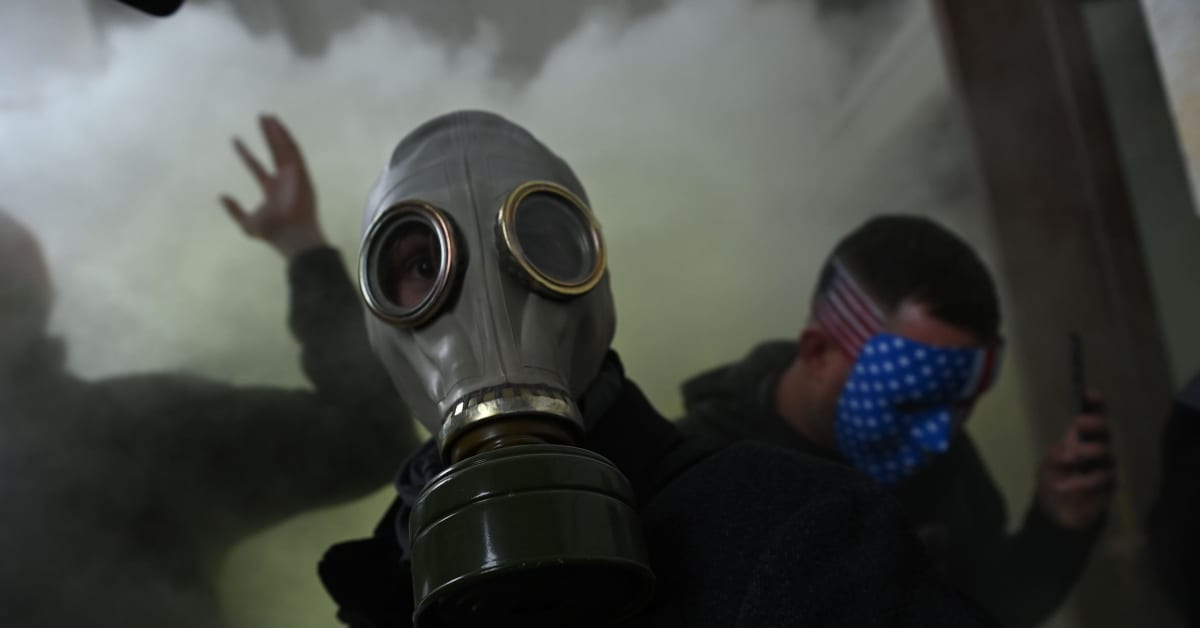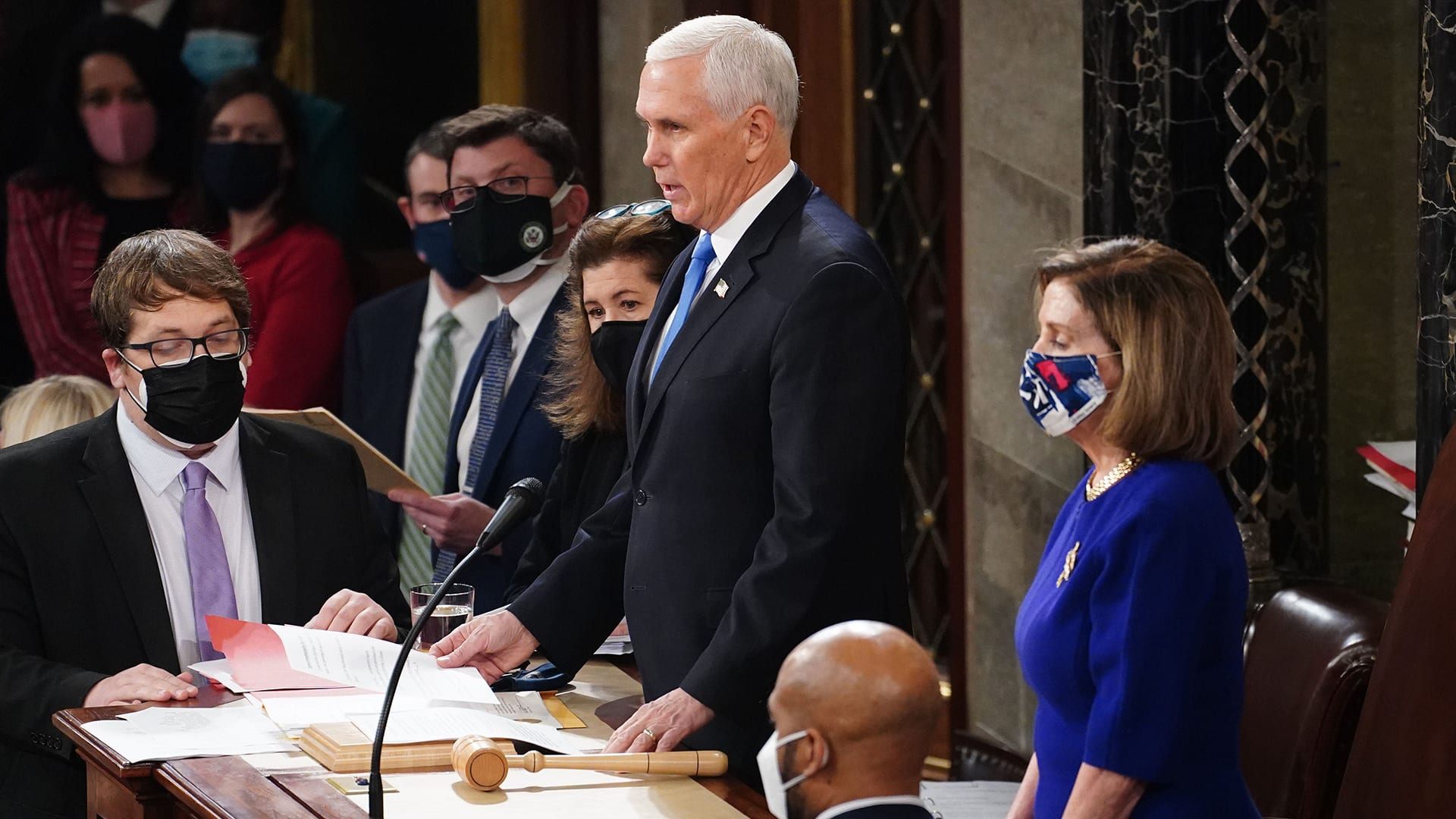-
PikanavigaatioAjankohtaista io-tech.fi uutiset Uutisia lyhyesti Muu uutiskeskustelu io-tech.fi artikkelit io-techin Youtube-videot Palaute, tiedotukset ja arvonnat
Tietotekniikka Prosessorit, ylikellotus, emolevyt ja muistit Näytönohjaimet Tallennus Kotelot ja virtalähteet Jäähdytys Konepaketit Kannettavat tietokoneet Buildit, setupit, kotelomodifikaatiot & DIY Oheislaitteet ja muut PC-komponentit
Tekniikkakeskustelut Ongelmat Yleinen rautakeskustelu Älypuhelimet, tabletit, älykellot ja muu mobiili Viihde-elektroniikka, audio ja kamerat Elektroniikka, rakentelu ja muut DIY-projektit Internet, tietoliikenne ja tietoturva Käyttäjien omat tuotetestit
Softakeskustelut Pelit, PC-pelaaminen ja pelikonsolit Ohjelmointi, pelikehitys ja muu sovelluskehitys Yleinen ohjelmistokeskustelu Testiohjelmat ja -tulokset
Muut keskustelut Autot ja liikenne Urheilu TV- & nettisarjat, elokuvat ja musiikki Ruoka & juoma Koti ja asuminen Yleistä keskustelua Politiikka ja yhteiskunta Hyvät tarjoukset Tekniikkatarjoukset Pelitarjoukset Ruoka- ja taloustarviketarjoukset Muut tarjoukset Black Friday 2025 -tarjoukset
Kauppa-alue
Follow along with the video below to see how to install our site as a web app on your home screen.
Huomio: This feature may not be available in some browsers.
-
TechBBS:n politiikka- ja yhteiskunta-alue (LUE ENSIN!)
Politiikka- ja yhteiskunta-alue on TechBBS-keskustelufoorumilla ala-osio, joka on tarkoitettu poliittisten ja yhteiskunnallisten aiheiden sekä niiden ilmiöiden ja haasteiden käsittelyyn.
Ohjeistus, säännöt ja rangaistukset koskevat vain tätä aluetta, muilla alueilla on käytössä TechBBS-foorumin tavalliset säännöt.
Ylläpito valvoo, ohjeistaa ja moderoi keskustelua, mutta ensisijaisesti alueen keskustelijoiden pitäisi pyrkiä aktiivisesti ylläpitämään asiallista keskustelua ja myös selvittämään mahdollisesti syntyviä erimielisyyksiä ilman ylläpidon puuttumista keskusteluun.
You should upgrade or use an alternative browser.
Yhdysvaltain 45. ja 47. presidentti Donald J. Trump
- Liittynyt
- 26.10.2016
- Viestejä
- 7 947
Ihan hyvin omasta mielestä se sitaatti avasi sisältöä. Saattaa tuokin olla yksi syy, tuskin saamme koskaan tietää. Toki hän on itse sanonut, että jos 230:n lopetus ei kuulu pakettiin hän vetoaa sen, niin tuota voidaan varmasti pitää päällimmäisenä syynä.Välillä sitä olettaa, että ketjun aktiivikirjoittajat ovat kärryllä asioista. Täytyy jatkossa vääntää rautalangasta.
Nyt kun tiedät asian taustat, onko sinulla keskusteltavaa itse aiheesta?
- Liittynyt
- 16.04.2017
- Viestejä
- 1 437
Jatkan koska tulkitsit väärin. Kiinan kahden lapsen politiikka ei ole kestävä lisääntymismalli. Uskontojen osalta tarkoitin että lisääntyminen on usein niihin sisäänkirjoitettuna ja joka usein tulkitaan että ehkäisy on kiellettyä. Tulkintoja on eri lahkoissa ja maissa kuitenkin erilaisia. Linkkisi pointti vasta-argumenttina vähän katosi kun siellä luki: "Globally, the Muslim population is forecast to grow at about twice the rate of the non-Muslim population over the next two decades." Valtaosalla tarkoitin juurikin niitä merkitseviä isoja alueita kuten Afrikkaa ja Intiaa. Pointti siis oli että porukan määrä ei ole vähenemässä tai pysähtymässä tällä pallolla vielä pitkään aikaan, mikä on monessa mielessä ongelmallista. Esimerkiksi näitä populistitonttuja sikiää kuin kärpäsiä heti seuraavan pakolaisaallon rantauduttua Eurooppaan. Tavallaan hyvä että sanotaan, mutta sitten taas ei. Nämä maahanmuutto/kulttuuri/rotuasiat ovat aina melko tulenarkoja.En nyt muuten tähän pitkään viestilliseen offtopicia puutu, mutta tuohan on aivan absurdi väite. Heti ensimmäisenä muistetaan itsestäänselvästi tuon kanssa ristiriidassa oleva ja varmaan kaikkien tiedossa oleva Kiinan kahden lapsen politiikka.
Kyllä muslimaissa on kokonaishedelmällisyysluku ollut laskussa niiden kehittyessä ihan samalla tavalla kuin länsimaissakin ja toisaalta kristillisissä kehitysmaissakin (ks. esim Kongo) se on hyvin korkea. Millään tietyllä uskonnolla vaikuttaa olevan ylipäätään koko asian kanssa vähän tekemistä.
Esimerkiksi tässä tuosta kehityssuunnasta muslimimaissa, kokonaishedelmällisyysluku on ollut laskussa kun muslimienemmistöiset maat ovat kehittyneet ja tämän odotetaan jatkuvan:
Muslim birth rate falls, population to grow more slowly
Se kuitenkin siitä. Onko kenellään muuten tarkempaa tietoa miten Trumpin 6.1-älämölökampanja etenee. Kannattaako varata popparit kainaloon loppiaseksi?
- Liittynyt
- 17.10.2016
- Viestejä
- 10 623
Todennäköisesti noin 20-30k lahkolaista kokoontuu siihen ralliin.Jatkan koska tulkitsit väärin. Kiinan kahden lapsen politiikka ei ole kestävä lisääntymismalli. Uskontojen osalta tarkoitin että lisääntyminen on usein niihin sisäänkirjoitettuna ja joka usein tulkitaan että ehkäisy on kiellettyä. Tulkintoja on eri lahkoissa ja maissa kuitenkin erilaisia. Linkkisi pointti vasta-argumenttina vähän katosi kun siellä luki: "Globally, the Muslim population is forecast to grow at about twice the rate of the non-Muslim population over the next two decades." Valtaosalla tarkoitin juurikin niitä merkitseviä isoja alueita kuten Afrikkaa ja Intiaa. Pointti siis oli että porukan määrä ei ole vähenemässä tai pysähtymässä tällä pallolla vielä pitkään aikaan, mikä on monessa mielessä ongelmallista. Esimerkiksi näitä populistitonttuja sikiää kuin kärpäsiä heti seuraavan pakolaisaallon rantauduttua Eurooppaan. Tavallaan hyvä että sanotaan, mutta sitten taas ei. Nämä maahanmuutto/kulttuuri/rotuasiat ovat aina melko tulenarkoja.
Se kuitenkin siitä. Onko kenellään muuten tarkempaa tietoa miten Trumpin 6.1-älämölökampanja etenee. Kannattaako varata popparit kainaloon loppiaseksi?
- Liittynyt
- 16.04.2017
- Viestejä
- 1 437
Ehkä hieman enemmän odotin, mutta on siinä nyt kuitenkin jonkun verran. Jos Trump tuonne vielä tulee niin pakkohan se kuitenkin on katsoa. Se epätodellisuuskupla alkaa jo olla sitä luokkaa että ihme jos ei pian jotain aikaulottuvuusvääristymää tapahdu.Todennäköisesti noin 20-30k lahkolaista kokoontuu siihen ralliin.
Trump pyysi vaaliviranomaisia siis muuttamaan vaalitulosta niin, että hän voittaisi osavaltion vaalin yhdellä äänellä.
Hän myös väitti Raffenspergerille, että heidän vaalituloksensa on laskettu täysin väärin.
– Uskomme, että meillä on paikkansapitävä vaalitulos, Raffensperger sanoo.
– Ei, ei ole. Ei lähelläkään. Olette satojatuhansia ääniä pielessä, Trump vastaa."

Washington Postin julkaisemalla nauhoitteella presidentti Trump painostaa Georgian osavaltion viranomaisia löytämään hänelle ääniä – Kuuntele otteita puhelusta
Tottahan se näyttää olevan, kun Trump väitti vaaleja "rigged"eiksi. Tosin kyseessä on, niin että hänen toimestaan. Tai ainakin yritti ja vieläkin yrittää. Ja republikaanit väittävät ettei Yhdysvallat ole banaanivaltio, vaikka itse sitä kovasti yrittävät siksi tehdä
- Liittynyt
- 17.10.2016
- Viestejä
- 3 703
Donald J. Trump (@realDonaldTrump) | Twitter
Viimeisimmät twiitit käyttäjältä Donald J. Trump (@realDonaldTrump). 45th President of the United States of America. Washington, DCtwitter.com
Trump on kiinnittänyt minuutin mittaisen itsekehuvideon twitteriinsä. Siinä nyt ei ole mitään kummallista- paitsi kohdassa 0.43 "Trump stands for Peace" kuvaan on editoitu Nobelin palkinto "mitali". Että mitäs pienistä...
Heh, mielenkiintoista että itsekehuvideo näkyy nyt poistuneen jonkin DMCA-pyynnön tms. seurauksena. Olisikohan liian vapaalla kädellä käytetty muiden kuvaamaa materiaalia.
- Liittynyt
- 07.03.2017
- Viestejä
- 2 255
Olin siinä uskossa että tämä kohupuhelu olisi ollut viimejoulukuulta tai marraskuulta, mutta nyt juuri viime lauantailta. On kyllä aikamoisessa kuplassa tuo Trumpin kuuppa.Edit2: Translitterointi löytyy https://www.washingtonpost.com/poli...68e0cc-4ddd-11eb-83e3-322644d82356_story.html
Ottaen huomioon kuinka pitkälle äijä on jo nyt valmis menemään että niitä ääniä "löytyisi", niin tuo 20. päivä on kyllä kovin pitkällä. Kyllä nyt tästä edesspäin jokainen tunti kun Trumppi on hereillä on arveluttava/vaarallinen. Kaivaa jonkun sotatilakortin sitten viimekädessä esiin, jolloin presidenttiä ei voi vaihtaa. En tosin lakia tunne että voiko tuollainen olla mahdollista.Papalla on jäänyt levy päälle. Muttei sekään auta, vinkukoon vaan rauhassa, 20. päivä tulee pian
Kaivaa jonkun sotatilakortin sitten viimekädessä esiin, jolloin presidenttiä ei voi vaihtaa. En tosin lakia tunne että voiko tuollainen olla mahdollista.
Vallankaappaus on vallankaappaus eikä Trumpilla ole ketään merkittäviä pelureita riittävästi puolellaan.
Marraskuussa Trump vaihtoi puolustusministeriön henkilökuntaa isolla kädellä. Ministerinä on nyt Christopher C. Miller ja kansliapäällikkönä Kashyap Patel, molemmat fanaattisia Trumpin kannattajia. Kaikki entiset elossa olevat puolustusministerit julkaisivat tammikuun alussa kirjeen, jossa he nimeltä mainiten Millerin vetosivat puolustusministeriin, ettei Miller antaisi Trumpin yllyttää itseään perustuslain vastaisiin sotilasvallankaappausyrityksiin.Vallankaappaus on vallankaappaus eikä Trumpilla ole ketään merkittäviä pelureita riittävästi puolellaan.
”He eivät vie tätä Valkoista taloa, aiomme taistella siitä hemmetisti”, Trump sanoi CNN:n mukaan. Sitten hän asetti taistelutehtävän varapresidentti Mike Pencen harteille.
”Toivon että mahtava varapresidenttimme selvittää tämän meille. Hän on mahtava tyyppi. Tietenkin jos hän ei onnistu, en tykkää hänestä yhtä paljon”, Trump sanoi."

”He eivät vie Valkoista taloa, aiomme taistella hemmetisti”, sanoi Trump ja asetti paineet varapresidentti Pencelle
Nykyinen presidentti jatkaa reilulla linjalla, tästä voikin kysyä että miksi Pence edes yrittää toimia hänen haluamallaan tavalla. Teki niin tai näin, niin Trump ei tule kantamaan mistään vastuuta
- Liittynyt
- 17.10.2016
- Viestejä
- 3 703
Republikaaneja ilmeisesti motivoi usko siihen, että Trump tulee olemaan erittäin vaikutusvaltainen puolueessa tulevaisuudessakin. Penceäkin saattaa houkuttaa tämän miellyttäminen kun voi olla presidenttiehdokuus haaveissa tulevaisuudessa, mutta saa nähdä mitä päättää lopulta.Nykyinen presidentti jatkaa reilulla linjalla, tästä voikin kysyä että miksi Pence edes yrittää toimia hänen haluamallaan tavalla. Teki niin tai näin, niin Trump ei tule kantamaan mistään vastuuta
- Liittynyt
- 21.12.2016
- Viestejä
- 2 924
Ei kai kukaan enää voi ottaa tota tosissaan? Niin houreista meininkiä että, jos ei olis Yhdysvaltojen presidentti joka moista harjoittaa, niin naurattaisi melkoisesti.
- Liittynyt
- 07.03.2017
- Viestejä
- 2 255
Tuli nyt jälkikäteen mieleen että kyseessä olisi joku tyhmä läppä. Eli ovat jo sopineet etukäteen että tehdään "huumoripuhelu". Siis jos toi puhelu on aito ja vakava, niin kyllä siellä nyt täytyy olla jotku toimet menossa päämiehen suitsimiseksi. Kekkosen viimeinen presidenttikausi varmaan ihan hyvä verrokki tähän.Ei morjens tota puhelua Raffenspergerin kanssa. Melkoinen neuvottelija Trump tosiaan, oikein diilimies.
Ei kai kukaan enää voi ottaa tota tosissaan? Niin houreista meininkiä että, jos ei olis Yhdysvaltojen presidentti joka moista harjoittaa, niin naurattaisi melkoisesti.
Toiseksi viimeistä kertaa mahdollisuus nauttia Trumpin tappiosta ennen 2024. Mahdollisesti viimeinen kun on spekloitu uutisissa, että yrittää Skotlantiin golf-kentälleen pakoon 20.1. juhlallisuuksia. Tosin Nicola Sturgeon torppasi suunnitelmat todeten, että golfin peluu ei ole riittävä peruste Skotlannin koronasulun rikkomiselle.
Georgian runoffikin on aika mielenkiintoinen. Vedonlyöntikertoimissa Loeffler ottamassa selkeämmin takkiin, Perdue 50-50 tai lievästi korkeampi kerroin kuin haastajalla. Jos tuo nyt menisi 2-0 demokraateille niin voi ihan puhtaasti laittaa Trumpin piikkiin.
- Liittynyt
- 17.10.2016
- Viestejä
- 3 703
Tästä uutisseurantaa Trump-jengin epätoivon kekkereistä:
Toiseksi viimeistä kertaa mahdollisuus nauttia Trumpin tappiosta ennen 2024. Mahdollisesti viimeinen kun on spekloitu uutisissa, että yrittää Skotlantiin golf-kentälleen pakoon 20.1. juhlallisuuksia. Tosin Nicola Sturgeon torppasi suunnitelmat todeten, että golfin peluu ei ole riittävä peruste Skotlannin koronasulun rikkomiselle.
Georgian runoffikin on aika mielenkiintoinen. Vedonlyöntikertoimissa Loeffler ottamassa selkeämmin takkiin, Perdue 50-50 tai lievästi korkeampi kerroin kuin haastajalla. Jos tuo nyt menisi 2-0 demokraateille niin voi ihan puhtaasti laittaa Trumpin piikkiin.
Täällä striimiä myös, melko vaarallista juttua oli ainakin edelliseltä puhujalta kyllä kun viitataan 1776 ja puhutaan väkivaltaan turvautumisesta...
- Liittynyt
- 16.10.2016
- Viestejä
- 22 365
Todellisuus on taas niin absurdia, ettei tätä voisi kukaan käsikirjoittaja keksiä.
- Liittynyt
- 22.12.2016
- Viestejä
- 22 504
On tästä se hyvä puoli, että mitä enemmän tämä porukka höpinöillään marginalisoituu niin sitä vieraantuneemmaksi tolkulliset republikaanit itsensä tästä tuntee.Skientologien raamattupiirit ovat kuin Mensan kokouksia verrattuna näiden sekopäiden höpinöihin ja tekemisiin. Nyt siellä joku pastori saarnaa suu vaahdossa miten Jumala saa todistaa kuinka on aika avata tarpeettomat sulut ja miten väärää mieltä olevat tuhotaan tai parannetaan ja yleisö hurraa aamenta.
Todellisuus on taas niin absurdia, ettei tätä voisi kukaan käsikirjoittaja keksiä.
- Liittynyt
- 24.06.2017
- Viestejä
- 5 214
Katsoin tuossa Stephen Kingin 1994 version The Standista eli suomalaisittain Tukikohdasta ja tällaisena vanhana patuna jäin ihmettelemään miten infantiilit jumaluudella höystetyt yliluonnolliset tarinat oikein tähdittävätkään suursuosioon.Skientologien raamattupiirit ovat kuin Mensan kokouksia verrattuna näiden sekopäiden höpinöihin ja tekemisiin. Nyt siellä joku pastori saarnaa suu vaahdossa miten Jumala saa todistaa kuinka on aika avata tarpeettomat sulut ja miten väärää mieltä olevat tuhotaan tai parannetaan ja yleisö hurraa aamenta.
Todellisuus on taas niin absurdia, ettei tätä voisi kukaan käsikirjoittaja keksiä.
Sitten luin uusimmat Trumpettiuutiset ja ymmärsin Kingin jeesustelujen olevan viiteryhmässään hienotunteista neroutta.
Voipi olla, ja onhan niin että varapresidentti "palvelee" presidenttiä hänen toimissaan. Mutta pitäisihän tuon olla selvää Pencellekin, että bussin alle joutuu saman tien jos tilanne sitä vaatii. Ja jos tuolla jotain suurempaa sitten tulisi, ja jotain virkarikoksia alkaisi tulemaan. Niin ei Penceä paljon lohduta ottaa iskuja Trumpin puolestaRepublikaaneja ilmeisesti motivoi usko siihen, että Trump tulee olemaan erittäin vaikutusvaltainen puolueessa tulevaisuudessakin. Penceäkin saattaa houkuttaa tämän miellyttäminen kun voi olla presidenttiehdokuus haaveissa tulevaisuudessa, mutta saa nähdä mitä päättää lopulta.
- Liittynyt
- 16.10.2016
- Viestejä
- 22 365

Yhdysvaltain kongressin kokous keskeytynyt, mielenosoittajat tunkeutuneet kongressiin
Suora lähetys:

USA:n kongressi kokoontuu vahvistamaan Joe Bidenin presidentiksi | Yle Uutiset suora
- Liittynyt
- 17.10.2016
- Viestejä
- 512
Alta tuhat hörhöä. Kohta noi pullamössöt kyllästyy ja menee takaisin kotiin telkkarin ja jääkaapin ääreen.Jep jep. Kyyyllä tuosta vielä sota saadaan aikaan.
Alta tuhat hörhöä. Kohta noi pullamössöt kyllästyy ja menee takaisin kotiin telkkarin ja jääkaapin ääreen.
Ja ennen kaikkea oivaltavat, että heillä ei ilmeisesti ollut mitään suunnitelmaa. Kuvittelin että se larppi oli jonkinlainen vallankaappaussuunnitelma mutta kaikki päättäjät on evakuoitu ja nää turistin näköiset reijot ja raijat räpsii selfieitä tuolla. Sen sijaan mitä noita newsfeedejä kuuntelee niin aika moni republikaani käyttää sanoja coup attempt, treason, impeachment jne. eikä demokraatista.
Nothing gained. Laskun suuruutta ei osaa vielä edes arvioita. Hajoaako koko republikaanipuolue tähän? Ted Cruzkin tuli näköjään järkiinsä nopeasti.
- Liittynyt
- 17.10.2016
- Viestejä
- 10 623
/img-s3.ilcdn.fi/ab761edb95e503c480edb766c819bd4d4e9ed4f710c66098d305ad6594b69da1.jpg)
IL seurasi Washingtonin kaaosta: Kongressin uhka ohi – neljä kuoli, kymmeniä pidätettiin
- Liittynyt
- 17.10.2016
- Viestejä
- 1 565
- Liittynyt
- 26.10.2016
- Viestejä
- 7 947
Yhdysvallat on kyllä ajanut itsensä totaaliseen kaaokseen ja vajonnut nopeasti banaanivaltioiden tasolle. Ulkopoliittisestihan tämä myös täydellinen ja lopullinen kasvojenmenetys.Selkeästi myös maan hallinnon sisälle on pesiytynyt runsaasti sekopäisiä demokratian vastaisia toimijoita, koska tämän näytelmän annetaan tapahtua ja viranomaisten ja poliitikkojen toiminta halutaan estää. Vuosisatojen vapaus ja demokratia on huuhdottu vessasta alas ja koko järjestelmä näyttää nyt katsottuna todella heikolta, kun muutama tuhat hihhulia saa koko maan sekasortoon.
Helpottaa toimintaa, kun commander in chief on pedannut hommia tuohon suuntaan jo kuukausia. Tuon takia DOD väkeä vaihdettu.
- Liittynyt
- 20.10.2016
- Viestejä
- 403
Yhdysvallat on kyllä ajanut itsensä totaaliseen kaaokseen ja vajonnut nopeasti banaanivaltioiden tasolle. Ulkopoliittisestihan tämä myös täydellinen ja lopullinen kasvojenmenetys.Selkeästi myös maan hallinnon sisälle on pesiytynyt runsaasti sekopäisiä demokratian vastaisia toimijoita, koska tämän näytelmän annetaan tapahtua ja viranomaisten ja poliitikkojen toiminta halutaan estää. Vuosisatojen vapaus ja demokratia on huuhdottu vessasta alas ja koko järjestelmä näyttää nyt katsottuna todella heikolta, kun muutama tuhat hihhulia saa koko maan sekasortoon.
Bidenillä riittää työtä kunnian palauttamisessa. Putin ja Xi nauravat tällaiselle heikkoudelle. Väkijoukko päästetään valtaamaan kongressirakennus. Mitä helvettiä?
- Liittynyt
- 22.12.2016
- Viestejä
- 22 504
Pieni mellakka Washingtonissa ei ole mikään "totaalinen kaaos". USA on saattanut itsensä hyvin kiusalliseen valoon ulkopoliittisesti, mutta demokratia ja vahva perustuslaki tulee voittamaan ja kahden viikon kuluttua USA:ssa on ihan toisenlaiset voimat vallassa kuin nyt. Toki trumpistit saattaa jatkaa riehumistaan senkin jälkeen, mutta kyllä niiden kanssa pärjätään.Yhdysvallat on kyllä ajanut itsensä totaaliseen kaaokseen ja vajonnut nopeasti banaanivaltioiden tasolle. Ulkopoliittisestihan tämä myös täydellinen ja lopullinen kasvojenmenetys.Selkeästi myös maan hallinnon sisälle on pesiytynyt runsaasti sekopäisiä demokratian vastaisia toimijoita, koska tämän näytelmän annetaan tapahtua ja viranomaisten ja poliitikkojen toiminta halutaan estää. Vuosisatojen vapaus ja demokratia on huuhdottu vessasta alas ja koko järjestelmä näyttää nyt katsottuna todella heikolta, kun muutama tuhat hihhulia saa koko maan sekasortoon.
- Liittynyt
- 17.10.2016
- Viestejä
- 10 623
Yhdysvaltalaisten medioiden mukaan tämä on totaalinen kaaos. Tottakai hetkellinen mutta vahingoittaa uskottavuutta muuhun maailmaan.Pieni mellakka Washingtonissa ei ole mikään "totaalinen kaaos". USA on saattanut itsensä hyvin kiusalliseen valoon ulkopoliittisesti, mutta demokratia ja vahva perustuslaki tulee voittamaan ja kahden viikon kuluttua USA:ssa on ihan toisenlaiset voimat vallassa kuin nyt. Toki trumpistit saattaa jatkaa riehumistaan senkin jälkeen, mutta kyllä niiden kanssa pärjätään.
Bidenin piti pitää puhe hetki sitten mutta ei voinut koska tilanne päällä. Onko koskaan aikaisemmin ollut vastaavaa tilannetta juuri ennen vallan vaihtumista..?
- Liittynyt
- 22.12.2016
- Viestejä
- 22 504
Uskottavuus on mennyt jo aikoja sitten... Toisaalta USA:lla on nyt hyvä tilaisuus näyttää muille, että vahva perustuslaki on tällaisenkin yläpuolella, ja ongelmat ovat vain tilapäisiä ja normaalius palaa kuin taikaiskusta.Yhdysvaltalaisten medioiden mukaan tämä on totaalinen kaaos. Tottakai hetkellinen mutta vahingoittaa uskottavuutta muuhun maailmaan.
- Liittynyt
- 16.10.2016
- Viestejä
- 4 965
Ulkonaliikkumiskielto alkaa vasta 6pmWashingtoniin on julistettu ukonaliikkumiskielto. Jotain siis tapahtuu hetken kuluttua.
- Liittynyt
- 16.10.2016
- Viestejä
- 2 710
Eli kahden tunnin päästä.Ulkonaliikkumiskielto alkaa vasta 6pm
- Liittynyt
- 22.10.2016
- Viestejä
- 7 579
Kyllä se maa on ajettu ihan muutenkin sekaisin ja jo ennen Trumppia. Tämä on vain seuraus, ei syy. Identiteettipolitiikat ym. yhteiskunnan polarisaatiot ftw. Nyt siellä kaikki on pelkkiä vihollis leirejä toisilleen.Helpottaa toimintaa, kun commander in chief on pedannut hommia tuohon suuntaan jo kuukausia. Tuon takia DOD väkeä vaihdettu.
- Liittynyt
- 22.10.2016
- Viestejä
- 7 579
Yhdysvaltalaisten medioiden mukaan tämä on totaalinen kaaos. Tottakai hetkellinen mutta vahingoittaa uskottavuutta muuhun maailmaan.
Bidenin piti pitää puhe hetki sitten mutta ei voinut koska tilanne päällä. Onko koskaan aikaisemmin ollut vastaavaa tilannetta juuri ennen vallan vaihtumista..?
Uskottavuus on mennyt jo aikoja sitten... Toisaalta USA:lla on nyt hyvä tilaisuus näyttää muille, että vahva perustuslaki on tällaisenkin yläpuolella, ja ongelmat ovat vain tilapäisiä ja normaalius palaa kuin taikaiskusta.
Kyllähän noi uutiset vähän lähtee lapasesta, jos jotain sekalaista hörhösakkia riehuu ja puhutaan vallankaappauksesta. Ei valtaa nyt ihan noin saada kaapattua. Se miten, nuo edes pääsi tuonne on kyllä mielenkiintoista.
- Liittynyt
- 26.10.2016
- Viestejä
- 7 947
Kyllä se maa on ajettu ihan muutenkin sekaisin ja jo ennen Trumppia. Tämä on vain seuraus, ei syy. Identiteettipolitiikat ym. yhteiskunnan polarisaatiot ftw. Nyt siellä kaikki on pelkkiä vihollis leirejä toisilleen.
Toki nuokin on ongelmia, mutta tämä itse tilanne on nyt kyllä rakennettu ihan Trumpin toimesta. Syötetty kuukausikaupalla salaliittoa ja disinformaatiota kannattajille. Samalla vaihdettu väkeä kokemattomiin, mutta uskollisiin palvelijoihin, jotka ei pärjää enää tällaisissa tilanteissa. Paine on liian kova, kun pelätään, mitä johtaja tekee, jos menee hänen tahtoaan vasten. Siksi epäilen, että DOD ensiksi hylkäsi pyynnön kansalliskaartin jalkauttamisesta.
- Liittynyt
- 22.12.2016
- Viestejä
- 22 504
Alimitoitetut turvatoimet... Käsittääkseni kansalliskaartia pyydettiin paikalle jo paljon aiemmin, muttei saatu?Kyllähän noi uutiset vähän lähtee lapasesta, jos jotain sekalaista hörhösakkia riehuu ja puhutaan vallankaappauksesta. Ei valtaa nyt ihan noin saada kaapattua. Se miten, nuo edes pääsi tuonne on kyllä mielenkiintoista.
Oli miten oli, niin päin hittoja oli suunniteltu capitolin turvatoimet. Suuri huligaanien luokkakokous järjestettiin lähistöllä, mikä oli ennakkoon tiedossa, joten kyllä olisi pitänyt osata varautua paremmin ja toisekseen mielestäni kongressin kokous olisi pitänyt järjestää jossain maanalaisissa väistötiloissa ylipäätäänkin. Käsittääkseni sellaiset on kyllä olemassa ydinsodan tms. varalta...
- Liittynyt
- 22.10.2016
- Viestejä
- 7 579
Trumppi on vallassa ainoastaan sen maan kahtiajakautumisen takia. Joka siis toisin sanoen luonnollisesti tapahtui jo ennen kuin Trump valittiin. Tilanne toki on jatkanut huonontumistaan. Saas nähdä joko siellä herätään...Toki nuokin on ongelmia, mutta tämä itse tilanne on nyt kyllä rakennettu ihan Trumpin toimesta. Syötetty kuukausikaupalla salaliittoa ja disinformaatiota kannattajille. Samalla vaihdettu väkeä kokemattomiin, mutta uskollisiin palvelijoihin, jotka ei pärjää enää tällaisissa tilanteissa. Paine on liian kova, kun pelätään, mitä johtaja tekee, jos menee hänen tahtoaan vasten. Siksi epäilen, että DOD ensiksi hylkäsi pyynnön kansalliskaartin jalkauttamisesta.
- Liittynyt
- 20.07.2019
- Viestejä
- 3 086
Olen henkilökohtaisesti hyvin väsynyt siihen mielipidevaikuttamiseen, mitä tuutista tulee.Kyllähän noi uutiset vähän lähtee lapasesta, jos jotain sekalaista hörhösakkia riehuu ja puhutaan vallankaappauksesta. Ei valtaa nyt ihan noin saada kaapattua. Se miten, nuo edes pääsi tuonne on kyllä mielenkiintoista.
Kongressirakennukseen yrittää tunkeutua aseetonta white trash -porukkaa, joka ei ole edes sen kummemmin organisoitunut, niin lehdet huutaa "Trumpin kannattajien vallankaappausyrityksestä". Missä on nyt ne netin lukuisat faktan tarkistajat?
Kuten on täälläkin monesti kirjoitettu, niin paikan turvatoimet ovat olleet täydellisen alimitoitetut vaikka on ollut hyvissä ajoissa tiedossa mitä lähistöllä tulee tapahtumaan. Tulee mieleen, että miksi turvatoimet olivat täydellisen alimitoitetut.
- Liittynyt
- 26.10.2016
- Viestejä
- 7 947
Trumppi on vallassa ainoastaan sen maan kahtiajakautumisen takia. Joka siis toisin sanoen luonnollisesti tapahtui ennen kuin Trump valittiin.
Periaatteessa kaikesta voisi johtaa jonkun asian syyn, mutta ei se kannata. Jos Eurooppalaiset ei olis mennyt uudelle mantereelle jne jne. Tätä ei olisi tapahtunut, jos Trump ei olisi puhunut paskaa useita kuukausia, vaan olisi tehnyt kuten presidentit ennen häntä. Onnitellut voittajaa.
- Liittynyt
- 08.04.2020
- Viestejä
- 2 372
Alimitoitetut turvatoimet... Käsittääkseni kansalliskaartia pyydettiin paikalle jo paljon aiemmin, muttei saatu?
Oli miten oli, niin päin hittoja oli suunniteltu capitolin turvatoimet. Suuri huligaanien luokkakokous järjestettiin lähistöllä, mikä oli ennakkoon tiedossa, joten kyllä olisi pitänyt osata varautua paremmin ja toisekseen mielestäni kongressin kokous olisi pitänyt järjestää jossain maanalaisissa väistötiloissa ylipäätäänkin. Käsittääkseni sellaiset on kyllä olemassa ydinsodan tms. varalta...
sama DC:n pormestari jätti turvatoimet pois kesällä RNC:n kokouksesta.
- Liittynyt
- 22.10.2016
- Viestejä
- 7 579
Aina voi myös kieltäytyä kuulemasta ja laittaa sormet korviin ja huutaa. Ajattele miten tykkäät, ei ole minun menetys. Toivon, että joku tuolla rapakon toisella puolella alkaa ymmärtää paremmin.Periaatteessa kaikesta voisi johtaa jonkun asian syyn, mutta ei se kannata. Jos Eurooppalaiset ei olis mennyt uudelle mantereelle jne jne. Tätä ei olisi tapahtunut, jos Trump ei olisi puhunut paskaa useita kuukausia, vaan olisi tehnyt kuten presidentit ennen häntä. Onnitellut voittajaa.
Ps. Yleensä syiden ymmärtäminen kyllä kannattaa.
- Liittynyt
- 26.10.2016
- Viestejä
- 7 947
Näin näyttää tapahtuneen. Jatketaan näin.Aina voi myös laittaa sormet korviin ja huutaa ja kieltäytyä kuulemasta. Ajattele miten tykkäät, ei ole minun menetys.
- Liittynyt
- 16.10.2016
- Viestejä
- 19 194
Alimitoitetut turvatoimet... Käsittääkseni kansalliskaartia pyydettiin paikalle jo paljon aiemmin, muttei saatu?
Oli miten oli, niin päin hittoja oli suunniteltu capitolin turvatoimet. Suuri huligaanien luokkakokous järjestettiin lähistöllä, mikä oli ennakkoon tiedossa, joten kyllä olisi pitänyt osata varautua paremmin ja toisekseen mielestäni kongressin kokous olisi pitänyt järjestää jossain maanalaisissa väistötiloissa ylipäätäänkin. Käsittääkseni sellaiset on kyllä olemassa ydinsodan tms. varalta...
Olen aika varma että kongressi ei ikinä suostuisi tuohon koska se olisi niin massiivisesti huono asia symbolisesti.
Nythän siellä jo senaattorit ovat vissiin ottaneet asenteen että he eivät lähde paikalta vaan palaavat saliin heti kun se on vain suinkin mahdollista, oli se kuinka paskana tahansa, ja jatkavat töitänsä.
Uutiset
-
Uusi artikkeli: Kokeilussa Huawei Watch Ultimate 2
13.2.2026 16:30
-
Samsung Display julkaisi QD-OLED Penta Tandem -brändin
13.2.2026 13:53
-
Asukselta uusi QD-OLED-pelinäyttö leveällä kuvasuhteella ja Google TV -integraatiolla
13.2.2026 13:17
-
AMD julkaisi uudet AMD Software 26.2.1 -ajurit näytönohjaimilleen ja grafiikkaohjaimilleen
13.2.2026 12:55
-
Live: io-techin Tekniikkapodcast (7/2026)
13.2.2026 08:00

